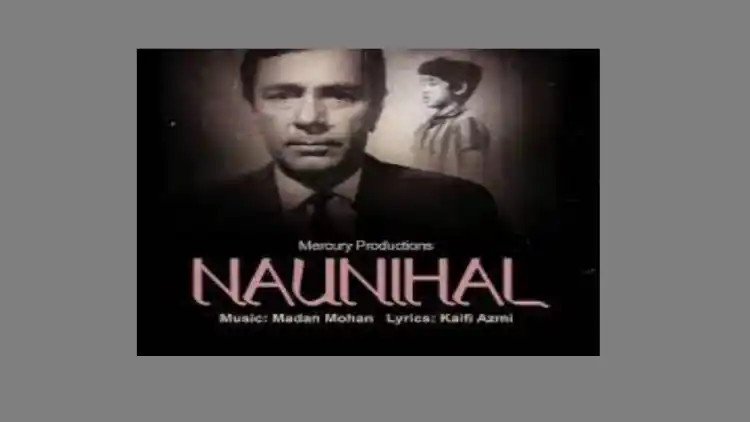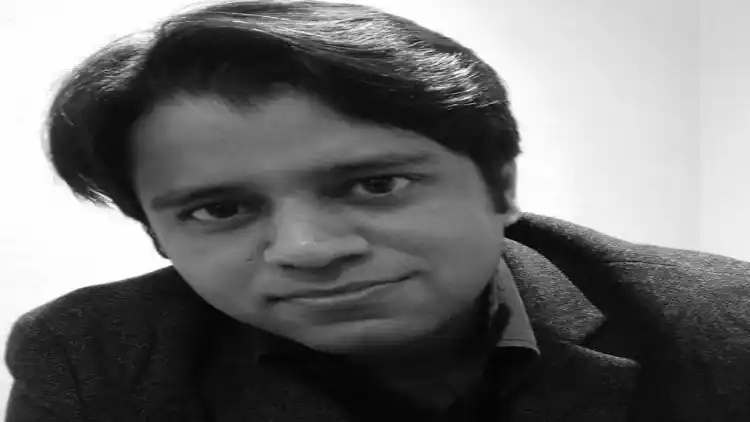
 Saquib Salim
Saquib Salim
Filmmakers try to capture the mood of the people. For this reason, in recent decades, we have witnessed a surge in stories on terrorism, LGBTQ rights, and corruption in Indian cinema. Today, a friend asked me to elaborate upon the bond Jawaharlal Nehru shared with the children. My instantaneous reply was: “watch the 1967 (Hindi) movie, Naunihal.
The greatest testament of the bond is the fact that the movie produced after Nehru’s death revolves around the theme of him being Chacha (paternal uncle) to a child. The movie, written by Sawan Kumar is an ode to the hope Nehru could bring to the hearts of common Indians. While on one hand, it looks at Nehru as hope for India, on the other, Naunihal highlights the problems of India of the sixties.
The movie opens with a young student Raju (Babloo), destroying the school property. The school management decided to punish him and asks the principal (Balraj Sahni) to summon his parents. Raju is an orphan. The Management questions the Principal as to how he is staying in a boarding school. The principal believes in giving an equal opportunity to the orphans and he defends it in front of the management.
Raju is allowed to stay. However, he keeps on getting into brawls with his classmates, who call him ‘orphan’. One day, the principal takes Raju in front of a portrait of Nehru and tells him that the Man in the picture is his Chacha. Raju’s young mind takes this bond seriously and starts. He starts writing letters to him and receives a reply to each one. Meanwhile, he comes to know that his Chacha is coming to Mumbai. It was time for students to leave for home with their parents, he runs away to Mumbai. The rest is the story is about his getting captured by a gang that makes him a child beggar and his heroism in escaping from there. He finally reaches Delhi and realizes that his Chacha had died the day they have otherwise met.
The movie is not a eulogy to Nehru’s India; instead, it brings out the problems of the country and yet it evokes hope. In Mumbai, when Raju could not meet his Chacha, he meets a deranged man, played by Harindranath Chattopadhyay, brother of Sarojini Naidu, who tells Raju that his Chacha only delivers speeches and makes people listen to him but never listens to them.
Chattopadhyay says he, like lakhs of Indians, has a lot to tell Nehru. When a gang captures Raju and puts him along with several captive girls and boys, who are forced to beg. A poet played by Jagdeep is employed to write songs for this gang that would be sung by the beggar children. He laments the plight of a society and nation in which a poet is made to write lyrics for the children to beg.
The Principal discovers Raju in Delhi. When he knows that he was made to beg for the gang in Mumbai, he says that now it’s the right time for Raju to meet Nehru. The principal says: Raju is not a child; he is a representative of all the marginalized voices in the country. Nehru is not listening to the voices of poor India.
The day Raju was scheduled to meet Nehru came the news of his death. Raju was inconsolable and the movie pays tribute to India’s first PM in the form of a memorable song, Meri awaz suno, pyar ka raag suno…by legendary Mohd. Rafi and written by Kaifi Azmi.
Once, Raju asks his teacher why Nehru keeps a rose in his pocket. Kaifi Azami gives the reply in his song with this line:..maine ek phuul jo seene pe saja rakha tha, uske parde me tumhe dil se laga rakha tha, (in the form of that rose near my chest I kept you close to my heart). The song is about the hope that the young children will take the country on the march of progress from where Nehru had left.
The movie is a gentle reminder of the impact Nehru had on Indian society and how Indians saw him.
(Saquib Salim is a writer and a historian)
